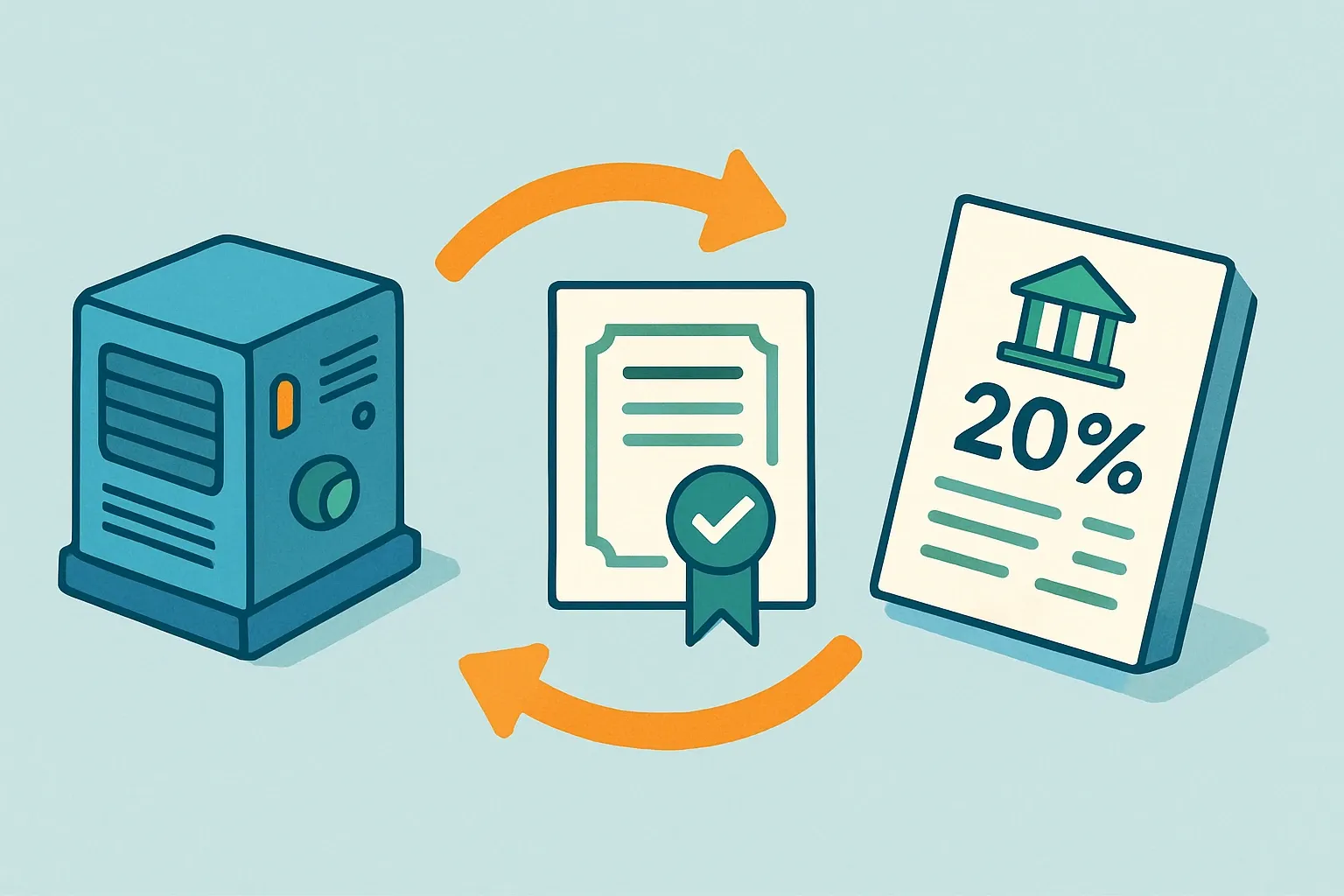Virginia’s Asphalt-Recycling Tax Credit, Decoded
Virginia lawmakers flirted with a 20 percent income-tax credit for buying asphalt-recycling equipment. House Bill 2740 stalled in February 2025, yet its core ideas keep resurfacing in Richmond and in copy-cat bills elsewhere. If you make or lay asphalt, here is why the proposal still matters for your plant ledger, your EPD numbers, and your sales pipeline.


HB 2740 in plain English
Introduced in the 2025 session, HB 2740 would have given taxpayers a non-refundable credit worth 20 percent of the purchase price of asphalt-recycling machinery, capped at (1) USD 3 million statewide per year and (2) 40 percent of any single filer’s tax liability (LegiScan, 2025). Unused portions could roll forward for ten years. The bill died in committee but its Senate twin, SB 1464, is still on the radar.
Money math you can actually use
If your corporation pays USD 1 million in Virginia income tax and buys a USD 2 million cold-planer, the theoretical credit equals USD 400 k, yet the 40 percent liability rule trims your first-year claim to USD 400 k × ? Actually you only claim USD 400 k in year one and carry any leftover for nine more filings. That runway pairs nicely with multi-year cap-ex cycles.
What it does to an asphalt EPD
Recycling 20 percent reclaimed asphalt pavement (RAP) can lower gate-to-gate global warming potential by roughly 15 percent, according to the National Road Research Alliance (2024). The new gear pushes RAP rates higher, so your next cradle-to-gate module A1-A3 will shrink. That shows up in the EPD and in procurement scorecards that rank by kilograms of CO₂-equivalent.
Want the latest EPD news?
Follow us on LinkedIn to get relevant updates for your industry.
DEQ certification and the data paper trail
The bill asked the Department of Environmental Quality to certify that each machine is "integral" to recycling. Plan on documentation that looks a lot like the utility and throughput logs you already collect for an LCA. Aligning those two data pulls saves headaches later.
Why spec writers care
Virginia Department of Transportation now lets contractors bid asphalt mixes with up to 45 percent RAP, provided they meet performance tests (VDOT spec 211, 2025). Design-build teams hungry for lower Scope 3 emissions will prioritize suppliers holding both the equipment and an up-to-date EPD that proves the impact cut.
Next moves while Richmond deliberates
- Map your aging mills and recyclers against five-year asset plans.
- Price qualifying machines before demand spikes.
- Draft the EPD addendum outlining higher RAP scenarios so you can publish fast if the credit passes.
Questions for your LCA partner
- Can they model varying RAP percentages without full plant data resets?
- Will they flag the correct PCR sections that cover on-site recycling?
- How quickly can they republish if the final bill tweaks the DEQ criteria?
Final thought
Even with the bill in limbo, recycled asphalt is barreling toward center stage. Plant owners who sync cap-ex, EPD strategy, and policy watchlists will grab market share while rivals wait for the ink to dry, we seen that pattern before.
Frequently Asked Questions
Does HB 2740 apply to used asphalt-recycling equipment purchases?
No. The bill’s text defined “purchase price” as the original capitalized cost, which implies new machinery only (HB 2740 draft, 2025).
Can sole proprietors claim the credit or is it only for C-corps?
Both individual and corporate income-tax payers would have been eligible, mirroring Virginia’s existing Recycling Equipment Credit language.
Would buying a portable crusher count?
Yes, if DEQ certifies that the crusher is integral to reclaiming or reprocessing asphalt pavement.
What happens to my EPD if the credit never becomes law?
Nothing breaks. You can still update RAP content voluntarily and publish a revised EPD when the production data justifies the change.
